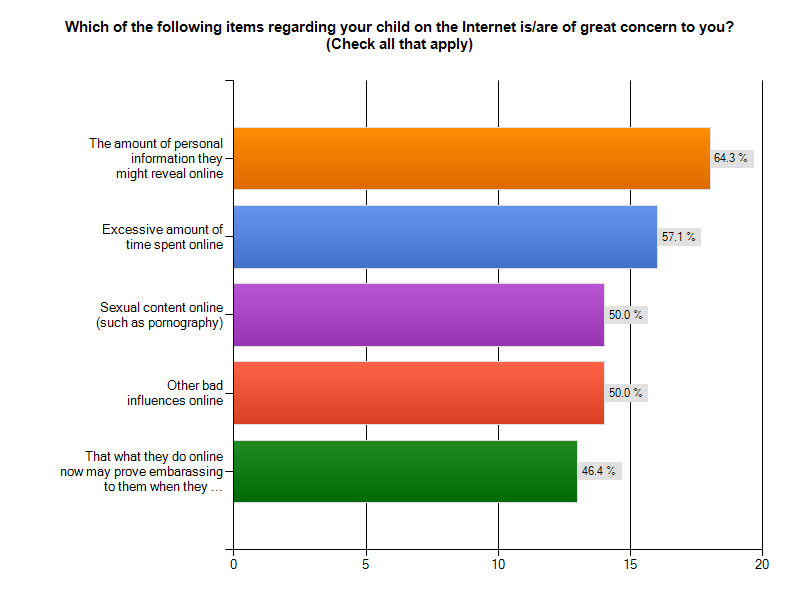 When my then 12-year-old twin daughters got their first cellphones last August, I was crystal clear about the conditions of responsible use, especially the ones about passwords shared with mom and dad, texts and messages to be subject to our occasional supervision.
When my then 12-year-old twin daughters got their first cellphones last August, I was crystal clear about the conditions of responsible use, especially the ones about passwords shared with mom and dad, texts and messages to be subject to our occasional supervision.
It was the same deal with Facebook and other social networks. I don’t read their diaries or private written correspondence, but anything one of my tweens or young teens puts into digital format is a whole different story. They don’t yet have the judgement or experience to know how the words they write can potentially end up hurting them — or someone else.
We hear about these stories all the time: otherwise good kids who get into trouble because they don’t fully appreciate how texting or Internet use can be taken out of context, be modified without permission, get forwarded or copied to the wrong people or used against them. Or they share their passwords with someone they thought was a friend (but wasn’t). Or someone tags them in an unflattering picture. Or they post a video without their friend’s permission.
At any rate, having explained and established these rules, I naïvely thought we were all on the same page. As time went on and they showed consistent, responsible use of these communication tools, we’d give them additional small increments of the freedom they had earned. I thought I had it all figured out.
Turns out I was wrong. Each exercise of my supervision brought on more urgent protests, all variations on the same theme: “Why don’t you trust me?”
Why on earth? Why shouldn’t I trust them? More objective sources than their mother will certainly attest to the fact that they are genuinely good kids, mature for their age, top-notch students. They (mostly) help around the house and (mostly) do their chores.
So what kind of horrible mother am I, to put them through such invasions of their privacy? Am I excessively controlling? Totally neurotic? A social media-obsessed helicopter parent?
While all those things are possibly true, I’m more inclined to say I’m primarily a realist. Also, I’m a mother who also happens to have done a lot of research into kids’ use of technology. And high-risk behaviours. One who knows that effective parenting is more about establishing firm limits than about indulging their passionate whims.
I’ve always been a big believer in letting them learn from their own mistakes, of the value of natural consequences. Skinned knees and B minuses and all that jazz. But the stakes are much higher when it comes to mistakes made online – the consequences are potentially much more serious. I wouldn’t leave my 12-year-olds alone for a weekend, so I’m certainly not going to turn them loose on the Internet.
And you know what? Almost every time I review their texts or posts, I see something we need to discuss, or something I file away as a parental “need to know.” As much as they fight it, we’ve had some good talks, and learned from their own and others’ actions the finer points of texting and social media etiquette.
Just to be clear, this kind of supervision is not an overly frequent occurrence. In the year since they got their own iPads for school and cellphones for their personal use, I have done it less and less. I’ve mostly seen responsible behaviour from them, so I now allow them to use them in their rooms (doors open) and sometimes to even charge them there overnight (as long as they go to sleep).
It’s also not something I do in secret. I don’t sneak their phones away from them or read their Facebook news feeds when they aren’t looking. I do it with them, with their knowledge.
But if I ever had an inkling that something was truly wrong, that bullying or drugs or a health issue were involved, I would have no problem doing it without telling them. That’s why I need their passwords. And they know this. Failure to inform me or their father of their passwords means they forfeit the phones, the iPads, the Internet access.
So when they roll their eyes and say “Why don’t you trust me?” I have these five responses ready. Sometimes I only need to get to two or three and we can move on. Some days I need to repeat all 5 and they are still angry and annoyed.
But you know what? That’s OK. If we don’t occasionally anger and annoy our teenagers with our calm logic, we have failed to properly do our jobs as parents. (Click to Tweet).
I’m doing this because I love you. If I didn’t care, I would let them make terrible mistakes and get into trouble without any supervision at all. This response won’t get you any superficial recognition or appreciation, sort of like imposing curfews. But they will be secretly, unconsciously relieved that we impose limits out of love.
I’m doing this because you don’t yet have the developmental capacity to exercise consistent good judgement over your actions. You can explain teenage brain development until you are blue in the face (check out this excellent article for a quick primer on how your teen’s brain works), but they are unlikely to accept it. After all, they feel really mature, so what are we going on about?
I’m doing this because the way you use Facebook (and other social media) can be tied to other high-risk behaviours. Heather Shoenberger, a doctoral student in the University of Missouri School of Journalism, found that those individuals who liked high-risk activity tended to update their status, upload photos and interact with friends frequently. Those who were more reserved tended to read others’ news feeds but didn’t post much about themselves. It’s hard to know exactly what this might mean for our teens, but it is arguably helpful to know about their personalities and penchant for riskier behaviours.
I’m doing this because giving you unrestricted access to these powerful communication technologies would be like handing a 15-year-old boy the keys to a Ferrari. Most full-grown adults don’t fully understand the power of the Internet, so why assume kids will? I’ve made some of my own cringe-inducing errors on the Internet over the years, out of ignorance, carelessness or lack of tech savvy. There’s a learning curve here that educators and experts are only starting to appreciate. Facebook is the largest de facto sociological experiment in the history of humanity, and yet we don’t think much about recording all our intimate personal data for others to see. What will this mean to us in 20 years? What will it mean to our kids?
I’m doing this because if you know I am watching, you may be more careful and less likely to post the wrong things. Eventually, the self-censoring parental presence (the one that is currently whispering “I can’t post that – Mom and Dad will kill me!”) will hopefully be assimilated and internalized into their own voice of moderation (“I shouldn’t post that, it might prove embarrassing/ hurtful”). Actually, it’s interesting to note that kids eventually seem to forget their parents are watching, unless they go through the occasional exercise of reviewing their posts together.
So how long do you have to do this? At what age can you just relax the reins and let them have more privacy? The answer is that there is no magic age. You know your own kid better than anyone. The acid test is whether they have consistently demonstrated responsibility and good judgement in this area. Gradually step back as a reward. If they make a mistake or overstep their bounds, step in a little closer. Over time most kids quickly learn. But until they are old enough to show the kind of care these tools deserve, don’t fool yourself into thinking everything is OK just because you aren’t paying attention.
Because love and trust aren’t necessarily the same thing when it comes to raising our kids.




